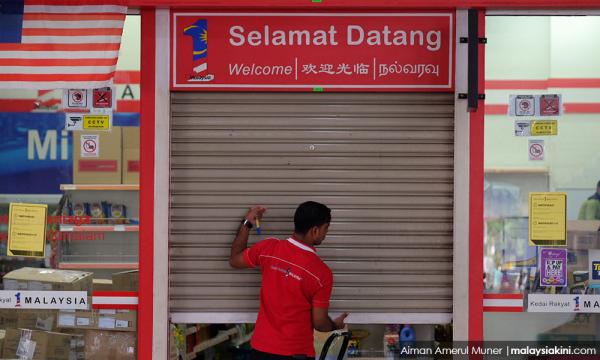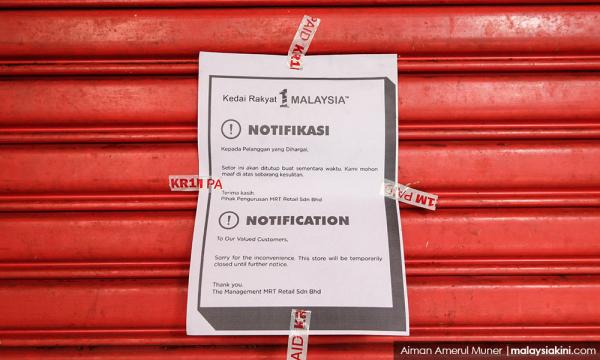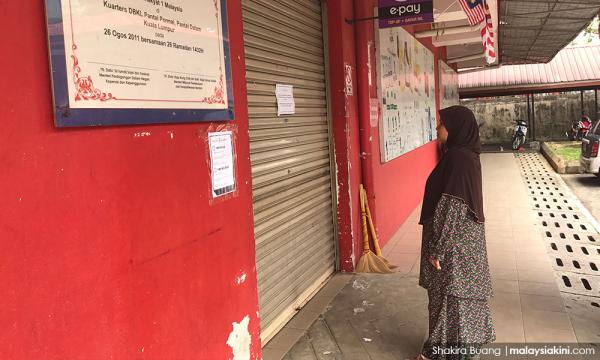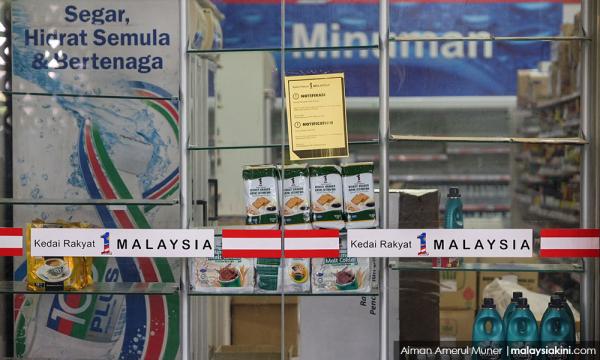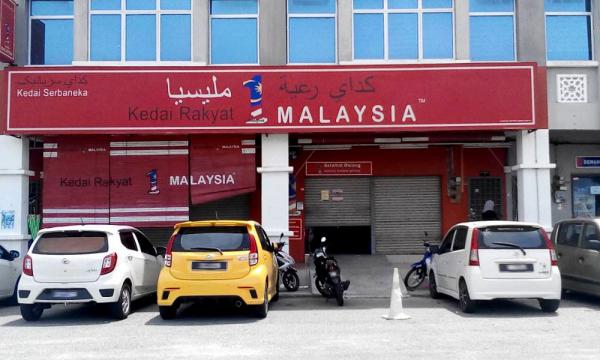YOURSAY | 'Why should gov't dabble in something private businesses are already doing well?'
Perhaps I was naive about KR1M, says Mydin boss
Existential Turd: Corporate social responsibility (CSR) or plain economic foolhardiness? There is a reason why the prices in rural areas and Sabah and Sarawak are high, as Ameer Ali Mydin, the eponymous owner of hypermarket chain Mydin, found out the hard way.
If the government (i.e. taxpayers) did not pay for the brick and mortar of the Kedai Rakyat 1Malaysia (KR1M) project, Ameer would have incurred RM200 million in losses instead of just RM100 million. So, it is not true that taxpayers did not subsidise the venture.
It would be better if Ameer had donated RM100 million to build some schools in rural areas. That would be real CSR.
Anonymous 6538905643565: I agree that KR1M 2.0 is bound to fail, just like KR1M. Why? Basic economics.
Is there any ownership for KR1M 1.0 or KR1M 2.0? Nil. It is just some government fund dumped into some kedai runcit (grocery store) activity without any responsibility or ownership. Who will look into the business and work out all the problems and issues?
After all, it is public money and there is no need to be accountable for it, right? So, is it a surprise that such ventures will fail?
Why should the government dabble in something that the private businesses are already doing efficiently?
Don’t you think that the major supermarkets or the small kedai runcit are scrutinising every expenditure and expenses of the retail business?
Again, I think the government is just putting on a publicity show. So, no matter how many times KR1M is launched and relaunched, I would think failure is inevitable as the government should not be involved in running private businesses. Just look at 1MDB.
Odysseus: If KR1M 1.0 had worked, shops like Speedmart 99 would have closed shop. The project shows the government is not capable of doing business as efficiently as the private sector.
If KR1M 2.0 has a real business strategy that will change the retail environment, you would have heard protests from local businesses. There's none. So, you know how KR1M 2.0 will end.
Hplooi: Indeed, the government should not be in the business of retail grocery. Downstream retailing of consumer goods (especially for the low-end market) is an extremely competitive market. You have to be extremely competent, nimble and street-smart.
The government should instead be creating macroeconomic conditions which allow prices of essential commodities to be low and affordable and leave downstream retailing to the efficient private sector.
Headhunter: Yes, KR1M is doomed from the start. As many of us had said before, the government has no business to be doing business, even through a third party.
Initially, Mydin probably thought that they struck gold. Reality soon struck them when they found out that their arm was twisted behind their back.
KR1M 2.0 will end up the same way. Any entity with the ‘1’ in its name seems to be cursed.
Why did Bank Negara buy gov't land at market price, asks Pua
Clever Voter: Bank Negara as a regulatory body for responsible and safe banking should only focus on its core mandate.
As practised elsewhere, Bank Negara’s role in higher education reflects the confidence level it has of the universities in the country.
Buying a huge expensive tract of land for the purpose of hosting higher education institutes for Islamic finance is seen to be excessive and extravagant.
There are already too many institutions of higher learning, and in such a crowded space, Bank Negara would be expected to exercise greater prudence.
Given the timing, it is hard to prevent anyone from suspecting something amiss.
Bank Negara’s leadership has to rise above expectations, and given the nature of its relationship with the establishment, it is hard to separate the political context.
Anonymous #21828131: Bank Negara's monies are public money and therefore the governor is duty-bound to ensure that every sen is spent prudently and wisely to safeguard our coffers.
One can see the disparity between this deal and the one on the former Sungai Besi Air Force land as well as the TRX land, both of which were sold for a song.
It is clear that the rakyat are the losers in these deals.
Anonymous 2436471476414726: Yes, it is very strange. Bank Negara, wanting to build a university, has had to purchase land from the government at market price.
Why was Bandar Malaysia land and Tun Razak Exchange land sold to 1MDB at nominal rates, and not at market price?
The government must be transparent on these transactions; otherwise, don't blame the rakyat for thinking that the RM2 billion Bank Negara paid for the current piece of land in question is but to save 1MDB's neck, which at that time needed a similar sum of money to be paid to the Abu Dhabi’s International Petroleum Investment Company (IPIC).
Cogito Ergo Sum: Petaling Jaya Utara MP Tony Pua has rightly pointed out that deals between one government agency to another are done at minimal rates, not at market value. We must conclude that Bank Negara has entered into an unfair deal.
Additionally, the government’s coffers are funded by taxes, labour and produce of the people. By logic, the people got a lousy deal in this transaction.
Sugar coating the fiasco by saying that it was for an Islamic academy on finance does not make it anymore kosher when one party has paid more than is required by practice.
Like the people, the government also seems to be living on a day-to-day basis. What poetic justice.
The above is a selection of comments posted by Malaysiakini subscribers. Only paying subscribers can post comments. Over the past one year, Malaysiakinians have posted over 100,000 comments. Join the Malaysiakini community and help set the news agenda. Subscribe now.
These comments are compiled to reflect the views of Malaysiakini subscribers on matters of public interest. Malaysiakini does not intend to represent these views as fact.

